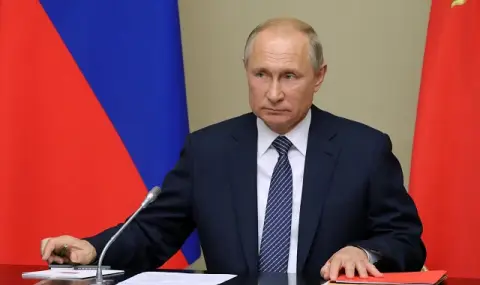"Putin does not seek to restore The Soviet Union", says Ivan Krastev to the Swiss NCC. The Russian president's goal is different, the Bulgarian political scientist believes.
Is "Europe mortal", as French President Emmanuel Macron declared? Andreas Ernst and Daniel Steinforth's interview with the Bulgarian political scientist Ivan Krastev, published in the Neue Zürcher Zeitung, begins with this question. According to him, Macron is right insofar as things can change more radically than we think. At the same time, the French president dramatized in an effort to draw attention to the speed of change. "We are currently confronted by apocalyptic worldviews on all sides," Krastev notes, referring to the gloomy forecasts of climate activists or the assumptions that the "great demographic exchange" will destroy our way of life.
It is a fact that "Europe is in survival mode", Krastev told the Swiss publication. But he also fears that people will go into shock if they are constantly told that if the problems are not solved now, they will never be solved. "Czech writer Milan Kundera says that vertigo is not a fear of falling," Krastev recalls. Vertigo is the desire to fall, which we resist through our fear.
"The idea of peace collapsed". Other illusions too.
The Bulgarian political scientist compares today's times with the late 1980s in Bulgaria, when the system was in crisis, but communism was thought to last for decades, and things changed very quickly. "And today our world is changing very quickly. The idea of lasting peace in Europe has collapsed. We understand that we live in pre-war times and all the important notions on which our security was based are no longer valid.
Ivan Krastev supports his words with the following examples: it was thought that mutual political dependence meant peace, but today we already know that dependence can be turned into a political weapon - as happened with Russian gas. Europe had also come to believe that military power no longer mattered because it counted on the US to guarantee its security. That illusion was shattered. Or nationalism - considered a spirit of the past, today it is precisely its strength that helped the Ukrainians to defend themselves against the Russians for so long.
"The fears in Europe are different"
In front of the NCC, Krastev also stated that the fears in Europe are very different - the Germans and the French are afraid of a nuclear war, while the Poles and the Baltics - that their countries may be occupied. And this has its historical explanation - because the countries in Eastern Europe do not take their existence for granted. "A country like Poland was too often divided, too often disappeared from the map," the political scientist recalls.
According to Ivan Krastev, Putin is not trying to restore the Soviet Union - he is trying to a much greater extent to redefine the Russian nation. "The war in Ukraine was also prompted by demographic development, i.e. from the rapid melting of the population in Russia. "Putin wants Ukrainians to become Russians," believes the chairman of the Center for Liberal Strategies.
And will the Europeans be able to defend themselves, ask the journalists from the Swiss edition. Krastev points out that the relationship between the US and Europe is no longer so strong. And he adds: "If the Europeans are sufficiently aware of the situation, I don't see why they can't succeed. We consider many things impossible only because we are too lazy to do them. When Putin launched his offensive, many believed that Ukraine would not hold out for more than six weeks. After all, it's a matter of will".
"Elections have never been more European.
In connection with the upcoming European elections, Ivan Krastev emphasizes the difference between fear and anxiety. "Fear is linked to a specific threat and mobilizes. Anxiety is diffuse and tends to paralyze," he says. When many threats and risks pile up—Ukraine won't last more than six weeks, inflation, migration—the result is an anxiety that benefits the far right. But she herself is also torn - for example, about her attitude towards Russia.
Elections have never been more European because now citizens know that it is really about where Europe is going, says Krastev, who is also a researcher at the Institute for Humanities and Social Sciences in Vienna. "This is, on the one hand, a consequence of the war in Ukraine, which led to a very strong integration of Europe. But at the same time, in different countries, the attitude and feelings towards the war are very different. Because the war brought history back, and it is nationally coded.
The Bulgarian political scientist also emphasizes the following: "People are increasingly convinced that Europe is not on the right track. But they hardly differentiate between national and European levels. Euroscepticism has changed - it is no longer a doubt in the EU's abilities, but an essential feeling that nothing can be achieved through traditional politics.
At the same time, he recalls that Europeans do not have a common language and a common history, and what unites them are the joint instruments that are being created - such as the recovery plan and support for Ukraine. Tools that are largely well received. Against the backdrop of major crises that affect everyone, EU supporters and their opponents increasingly know that they are in the same boat, says Krastev. But for some they call it the "Titanic", and for others it is a kind of Noah's Ark, the political scientist summarizes.
